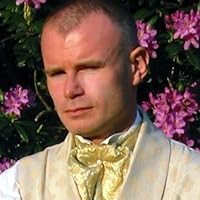Film Quotes
Quotes tagged as "film"
Showing 91-120 of 645

“In a way, what Tarantino has done with the French New Wave and with David Lynch is what Pat Boone did with rhythm and blues: He's found (ingeniously) a way to take what is ragged and distinctive and menacing about their work and homogenize it, churn it until it's smooth and cool and hygienic enough for mass consumption. Reservoir Dogs, for example, with its comically banal lunch chatter, creepily otiose code names, and intrusive soundtrack of campy pop from decades past, is a Lynch movie made commercial, i.e., fast, linear, and with what was idiosyncratically surreal now made fashionably (i.e., "hiply") surreal [...] D. Lynch is an exponentially better filmmaker than Q. Tarantino. For, unlike Tarantino, D. Lynch knows that an act of violence in an American film has, through repetition and desensitization, lost the ability to refer to anything but itself. A better way to put what I just tried to say: Quentin Tarantino is interested in watching somebody's ear getting cut off; David Lynch is interested in the ear.”
―
―

“I think that is what film and art and music do; they can work as a map of sorts for your feelings.”
―
―

“The eye solicited alone makes the ear impatient, the ear solicited alone makes the eye impatient. Use these impatiences. Power of the cinematographer who appeals to the two senses in a governable way.
Against the tactics of speed, of noise, set tactics of slowness, of silence.”
―
Against the tactics of speed, of noise, set tactics of slowness, of silence.”
―

“I don't know. I don't really like old movies. The acting is so, 'Hey buddy, ol' pal. Let's go wear our hats and have a big misunderstanding”
― Anna and the French Kiss
― Anna and the French Kiss

“The opinion of the public is sacred. The director is a cook who merely offers different dishes to them and has no right to insist they react in a particular way. A film is just a projection of light, completed only when it crosses the gaze of the audience[...]”
― Herzog on Herzog: Conversations with Paul Cronin
― Herzog on Herzog: Conversations with Paul Cronin

“Gene [Siskel] often mentioned something François Truffaut once told him: the most beautiful sight in a movie theater is to walk down to the front, turn around, and look at the light from the screen reflected on the upturned faces of the members of the audience.”
―
―

“Over the years, I have been subjected to many indignities, all for the sake of Art. If I ever catch him, I'm going to kill the guy.”
― THE ROAD TO HOLLYWOOD~MY FORTY-YEAR LOVE AFFAIR WITH THE MOVIES
― THE ROAD TO HOLLYWOOD~MY FORTY-YEAR LOVE AFFAIR WITH THE MOVIES

“When I took my clothes off in Blue Velvet, I wanted to convey the brutality of sex abuse. I wanted to look like a quartered cow hanging in a butcher shop as well as disturbingly appealing.”
― Some of Me
― Some of Me

“I got hold of a copy of the video that showed how Saddam Hussein had actually confirmed himself in power. This snuff-movie opens with a plenary session of the Ba'ath Party central committee: perhaps a hundred men. Suddenly the doors are locked and Saddam, in the chair, announces a special session. Into the room is dragged an obviously broken man, who begins to emit a robotic confession of treason and subversion, that he sobs has been instigated by Syrian and other agents. As the (literally) extorted confession unfolds, names begin to be named. Once a fellow-conspirator is identified, guards come to his seat and haul him from the room. The reclining Saddam, meanwhile, lights a large cigar and contentedly scans his dossiers. The sickness of fear in the room is such that men begin to crack up and weep, rising to their feet to shout hysterical praise, even love, for the leader. Inexorably, though, the cull continues, and faces and bodies go slack as their owners are pinioned and led away. When it is over, about half the committee members are left, moaning with relief and heaving with ardent love for the boss. (In an accompanying sequel, which I have not seen, they were apparently required to go into the yard outside and shoot the other half, thus sealing the pact with Saddam. I am not sure that even Beria or Himmler would have had the nerve and ingenuity and cruelty to come up with that.)”
― Hitch 22: A Memoir
― Hitch 22: A Memoir
“I want to die, stripped, by myself, of all fantasies. That's the goal. I want to feel what is real, at the end, and only what is real. Grip fiercely with my eyes all that is around me--the people of my intimate life, the objects in the room, without the evasions of fantasies.”
― The Sadness of Antonioni: A Novel
― The Sadness of Antonioni: A Novel

“That's the illusion of stillness. There is no secret. Only the implication of one by its possesor".”
―
―

“The body lay outside an abandoned, boarded-up theater. The theater had started as a first-run movie house, many years back when the neighborhood had still been fashionable. As the neighborhood began rotting, the theater began showing second-run films, and then old movies, and finally foreign-language films.”
―
―

“Suppose every photo of me ever taken was an infinitesimal piece? Every magazine ad, every negative, every frame of motion picture film - another tiny molecule of me, stolen away to feed an audience that is *never* satiated. And when someone is fully consumed - vampirized - they move on, still hungry, to pick their next victim by making him or her a star. That's why they're called consumers. ("Red Light")”
― Seeing Red
― Seeing Red

“Hollywood's Studio Era was part of a Golden Age because it didn't need profanity (unlike reality-television today)”
―
―
“Cinema is a mixed form. L'Avventura has characters, it has social context, and these things are not trivial. Its plot is the disappearance of a disappearance. Possibly the most frightening plot imaginable. Forgetting the dead, whom all of history tells us we must remember. But what makes movies themselves, rather than novels or plays, is something else. What is it if not the film medium itself? The purity of the visual, which lies in the silence of the stilled image. The freeze frame. The deeply, deeply silent image. Like death. The image in itself in its silent purity reaches--it reaches!--for the purity of death.”
― The Sadness of Antonioni: A Novel
― The Sadness of Antonioni: A Novel

“...When the bespangled Miss Charisse wraps her phenomenal legs around [Fred] Astaire, she can be forgiven everything—even the fact that she reads her lines as if she learned them phonetically.”
― Kiss Kiss Bang Bang: Film Writings, 1965-1967
― Kiss Kiss Bang Bang: Film Writings, 1965-1967

“The shot [in the 1956 film Written on the Wind] with Dorothy Malone walking down the stairs makes all rock videos ever after resemble forgotten, anemic nuns.”
―
―
“Here's the most startling irony I know in film history: Antonioni, who is often denigrated by left-wing critics as a formalist and aesthete gives us radical realism through the long take, and what he gives us--this is his metaphysical wager--is real outside the film, off the set, beyond the camera and underneath the surface of everyday life.”
― The Sadness of Antonioni: A Novel
― The Sadness of Antonioni: A Novel

“A photograph does not present us with ‘likenesses’ of things; it presents us, we want to say, with the things themselves. But wanting to say that may well make us ontologically restless. ‘Photographs present us with things themselves’ sounds, and ought to sound, paradoxical … It is no less paradoxical or false to hold up a photograph of Garbo and say, ‘That is not Garbo,’ if all you mean is that the object you are holding up is not a human creature. Such troubles in notating so obvious a fact suggest that we do not know what a photograph is; we do not know how to place it ontologically. We might say that we don’t know how to think of the connection between a photograph and what it is a photograph of.”
― The World Viewed: Reflections on the Ontology of Film, Enlarged Edition
― The World Viewed: Reflections on the Ontology of Film, Enlarged Edition

“Is there a support group for people who didn’t like ‘Brokeback Mountain’? We must, if the rave reviews and the newspaper reports are to be believed, be a very tiny — not to mention vulnerable — minority. Am I dead inside because I didn’t experience the torrent of emotions I’ve been reading about? Am I as emotionally crippled as Ennis because I didn’t blub and hug after sitting through this ‘visceral’ movie, but instead wanted to go and ‘help with the roundup’?”
―
―
All Quotes
|
My Quotes
|
Add A Quote
Browse By Tag
- Love Quotes 97k
- Life Quotes 75.5k
- Inspirational Quotes 72.5k
- Humor Quotes 43.5k
- Philosophy Quotes 29.5k
- Inspirational Quotes Quotes 27k
- God Quotes 26k
- Truth Quotes 23.5k
- Wisdom Quotes 23.5k
- Romance Quotes 23k
- Poetry Quotes 22k
- Death Quotes 20k
- Happiness Quotes 18.5k
- Life Lessons Quotes 18.5k
- Hope Quotes 18k
- Faith Quotes 18k
- Quotes Quotes 16.5k
- Inspiration Quotes 16.5k
- Spirituality Quotes 15k
- Religion Quotes 15k
- Motivational Quotes 15k
- Writing Quotes 14.5k
- Relationships Quotes 14.5k
- Life Quotes Quotes 14k
- Love Quotes Quotes 13.5k
- Success Quotes 13.5k
- Time Quotes 12.5k
- Motivation Quotes 12k
- Science Quotes 11.5k
- Knowledge Quotes 11k






